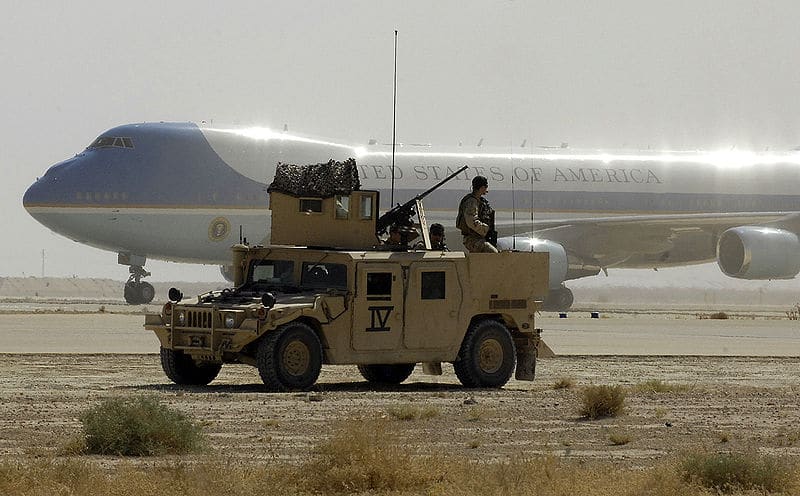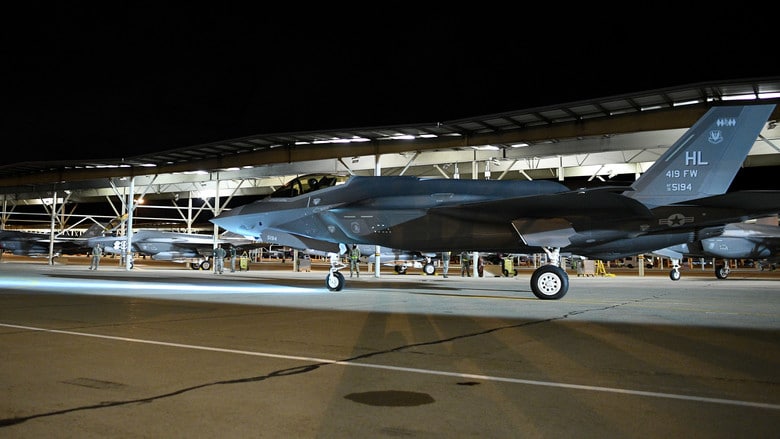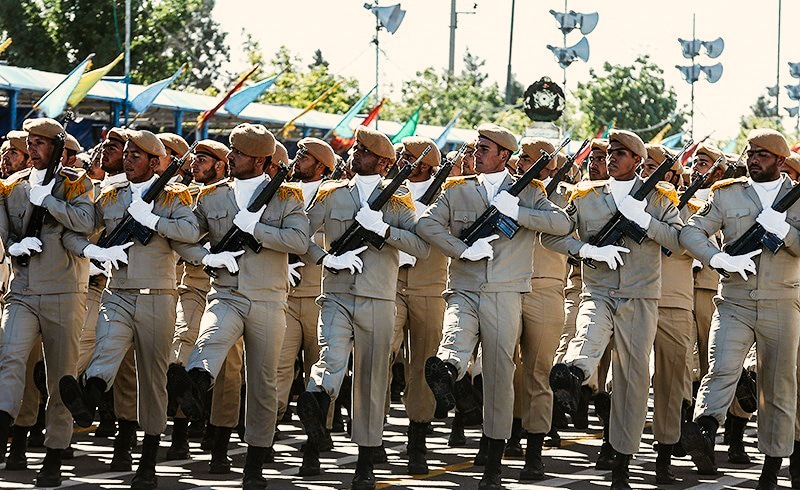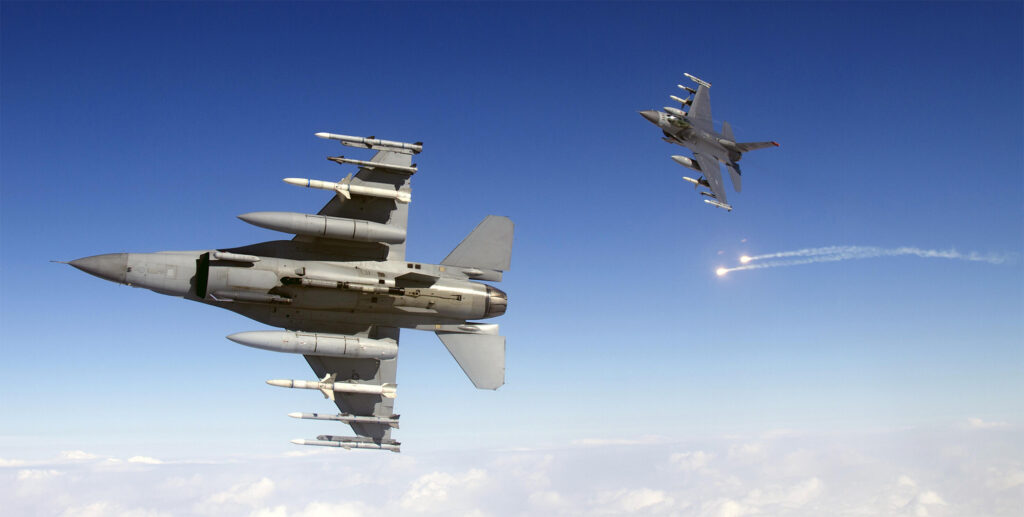Last night, Iran launched a number of short or medium range ballistic missiles at military installations inside Iraq that house American troops. While early reports referred to these missile strikes as rocket attacks, the use of ballistic missiles launched from within Iranian borders actually makes the situation far more serious.
At approximately 5:30 p.m. (EST) on January 7, Iran launched more than a dozen ballistic missiles against U.S. military and coalition forces in Iraq,” said Pentagon spokesman Jonathan Hoffman. “It is clear that these missiles were launched from Iran and targeted at least two Iraqi military bases hosting U.S. military and coalition personnel at Al-Assad and Irbil.”
Rocket and mortar attacks are somewhat common in this region of the world, and Iran has a long history of well-established relationships with third-party extremist organizations that often act on Iran’s behalf. A rocket attack would have offered Iran a certain degree of plausible deniability, whereas ballistic missile strikes are a clear and overt act of war.
Or are they?
Iran’s attack was prompted by last week’s American drone strike in Baghdad that killed Iranian Maj. Gen. Qasem Soleimani, the leader of Iran’s elite and secretive Al Quds Force. Al Quds, to a certain degree, can be compared to a combination of America’s CIA and U.S. Army Special Forces. Al Quds soldiers are tasked with covert operations the world over, where instead of training national militaries to defend themselves (like American Green Berets), they train and back terror groups with extremist views that are in keeping with Iran’s foreign policy.

Unlike in the United States, Iran’s military, known as the IRGC, carries a great deal of political and economic leverage over the government, and few individuals could be seen as more powerful than Soleimani. In the eyes of the Iranian people, killing Soleimani would be akin to an Iranian drone strike killing a high ranking defense official or politician in the United States. It’s important to frame the situation that way in order to understand the strong public outcry within Iran for retaliation. Soleimani was indeed responsible for the deaths of many Americans, but among portions of the Iranian people, that made him a hero, rather than a terrorist. If America’s Secretary of Defense were killed by an Iranian missile strike today, many Americans would likewise demand decisive retaliatory action. That action, we now know, came in the form of last night’s missile strikes (or at least, started with them).
However, despite how worrisome this all may appear, initial reports indicate that Iran’s missile strikes caused no American casualties, and statements from senior Iranian officials seem to indicate that Iran does not intend to further escalate their conflict with the United States.
Iran took & concluded proportionate measures in self-defense under Article 51 of UN Charter targeting base from which cowardly armed attack against our citizens & senior officials were launched.
We do not seek escalation or war, but will defend ourselves against any aggression.
— Javad Zarif (@JZarif) January 8, 2020
This tweet posted by Iran’s Foreign Minister Javad Zarif may talk tough about America’s drone strike, but it’s also carefully framed to offer precedent for their retaliatory strike in the eyes of the international community. By citing Article 51 of the UN Charter, Iran is making an unusual overture toward international norms — something that is not entirely common from an aggressive state like Iran. This would seem to indicate that Iran recognized the need to respond to America’s drone strike, both in order to satiate the demand from their people, and to set a precedent with the international community that Iran would not sit idly by while high ranking members of its military are killed.
That line of thinking may seem like a bit of a stretch, but there’s actually a fair amount of evidence to support it. Iran is aware that many Americans troops would be asleep at the time of the attack, leaving much of their target installations devoid of people or activity. They are also well aware of the limitations of their ballistic missile inventory and America’s advanced air-defense systems, though none were present at either installation Iran targeted.
To be brief, lobbing some fairly inaccurate missiles at Al-Assad, one of America’s most fortified installations in the region, was an opportunity for the Iranian government to save face while mitigating at least some of the risk of the United States declaring war as as result. It seems possible that Iran may have nefarious intentions, but they also have a strong enough survival instinct to recognize that open war with the United States is a bad idea.

That theory is further bolstered by this morning’s news that Iran warned Iraq about the offensive prior to it occurring. That warning was reportedly passed to the United States, who were then given ample opportunity to prepare for the inbound strike.
Last night, as members of Trump’s cabinet departed the White House only hours after the strike occurred, the possibility that last night’s attack may not lead to war began to feel a bit more possible. Trump then took to Twitter to offer this message to the American people:
All is well! Missiles launched from Iran at two military bases located in Iraq. Assessment of casualties & damages taking place now. So far, so good! We have the most powerful and well equipped military anywhere in the world, by far! I will be making a statement tomorrow morning.
— Donald J. Trump (@realDonaldTrump) January 8, 2020
President Trump’s tweet opens with a single sentence that might suggest the possibility of averting war also: “All is well!” If Iran’s attack only damaged equipment and facilities but did not claim any American lives, the United States may be inclined to respond to this attack via diplomatic or economic channels. The United States will almost certainly respond to the attack, but not necessarily with troops.
Neither Tehran nor the United States want to go to war at this juncture. For Trump, it would be politically unpopular, and for Iran, it could be disastrous. That doesn’t mean war won’t happen, but it does mean there remains a narrow but open avenue toward peace. The question is, will both nations try to stay on it?
UPDATE:
President Trump announced today that Iran appears to be backing away from conflict in the wake of Iranian missile strikes targeting U.S. forces stationed in Iraq Tuesday night.
“Iran appears to be standing down, which is a good thing for all parties concerned,” he said, in remarks from the White House this morning. “The American people should be extremely grateful and happy. No Americans were harmed in last night’s attack by the Iranian regime.”
Trump also announced his intention to levy new sanctions against the Iranian government in response to their missile offensive.
Modified feature photo courtesy of Tasnim News Agency


